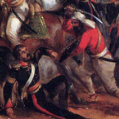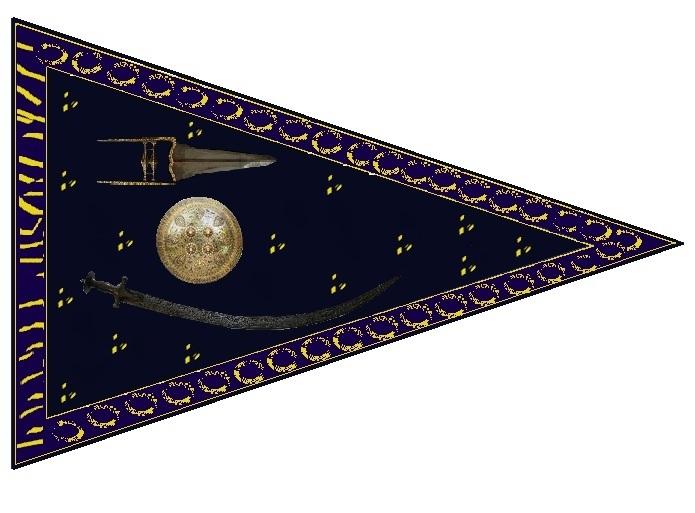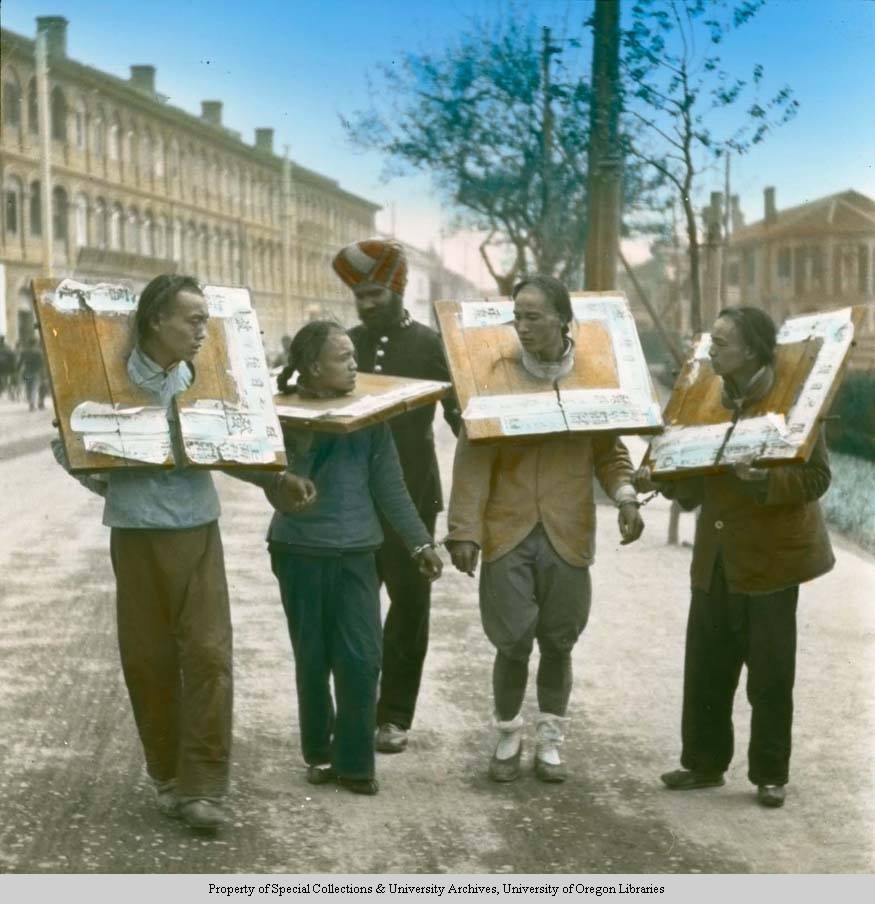-
Posts
9,150 -
Joined
-
Last visited
-
Days Won
232
Content Type
Profiles
Calendar
Forums
Everything posted by dallysingh101
-

Pics of jaats getting into sikhi!
dallysingh101 replied to shastarSingh's topic in WHAT'S HAPPENING?
@shastarSingh Veer ji, these new converts - which type of Sikh do you think they are according to classifications from Sau Sakhi? 1) ਧੰਧ - ਪੈਸੇ/ਧਨ ਕਮਾਉਣ ਲਈ ਕੀਤਾ ਕੰਮ। Something done for earning money/wealth 2) ਦੇਖਾ ਦੇਖੀ - imitatively, following or copying the vogue of some particular person; monkeying. 3) ਹਿਰਸੀ - ਹਿਰਸ (ਤ੍ਰਿਸਨਾ) ਵਾਲਾ. ਲਾਲਚੀ. desirous, ambitious, greedy, covetous, avaricious, avid; sexy, lascivious, lecherous. 4) ਸਿਦਕੀ - ਸਿਦਕ ਵਾਲਾ. ਸ਼੍ਰੱਧਾਲੂ. faith, belief, trust; contentment; patience. 5) ਭਾਵ - ਪਿਆਰ, ਪ੍ਰੇਮ। 2. ਚੰਗੇ ਖਿਆਲ। 3. ਭਵਿਖ ਕਾਲ, ਆਉਣ ਵਾਲਾ ਸਮਾਂ। 4. ਹਾਵ ਭਾਵ, ਨਖਰੇ। underlying meaning or idea, import sense, drift of thought; gist, purport; purpose, object; feeling, sentiment, emotion, passion, sensibility, affection. -

Why Panjabis learn Bhangra in the west
dallysingh101 replied to 5aaban's topic in POLITICS | LIFESTYLE
It's only if we've got our own act right that people convert. Right now, many outsiders probably see serious unexplained inconsistencies in practices amongst us. Many goray think we are some party animal bhangra paa-ing machines right now, judging from what I hear. Some people who delve deeper will be attracted to it, and have converted. -
@shastarSingh You asked repeatedly, so I'll give you my opinion. Is Panjabi 5500 years old? I can't say for certain, but I don't think so. Here are some of the reasons. Languages can change vastly within even a few centuries. Look at how english was for instance in Chauncer's Cantebury Tales compared to now. Even William Shakespeare's stuff in largely unintelligible to modern working class english readers. If you look at many old manuscripts from ye olde england, they are the same. And this country has had infinitely less invasions than Panjab. Languages are really subject to change and adaptation. Even more so through repeated periods of tumult. But even without this they naturally seem to change. We can see with the language of Baba Nanak ji's Jap ji Sahib, which is Panjabi, how different it is to modern Panjabi. BUT, if we are saying some phonemes (i.e. elemental sounds) of the language of that time (5500 years ago) have survived and are preserved in the Gurmukhi alphabet - then I think that is more plausible. I think that is perhaps what the article is saying? One thing is certain though, just judging from the structuring of the Gurmukhi alphabet script (and indeed other similar Indic scripts), the knowledge of sound and linguistics was shockingly advanced in ancient India. By this I mean how they structured the alphabet so concisely in term of aspiration, voiced sounds, nasal sounds etc. If they could preserve Sanskrit so reasonably well over such a time period, they could have easily done the same for Panjabi.
-

Sikhs fighting in German forces in WW2
dallysingh101 replied to proactive's topic in GURBANI | SAKHIAN | HISTORY
Like the afreekan juts in africa was any less racist. They're all guilty. Anyway, like you can now see. Your macho hor5eshyte fantasy is a lie, juts got treated like shyte by goray despite fighting for them, and taking fake amrit that inserted vows to kiss the queens ar5e. They truly dominated you. The image you try put out is comical and far from the truth. And I tell you another thing, a lot of tarkhans are f**king glad other Sikhs get to be making an honest living from industries we pioneered, it saves them being degraded like they were by brits (in desperation for money) and by association demeaning Sikhi too. They gave you your first taste of freedom outside of slavery out here and took you from unskilled peasants to the world of skilled, self-employment. Thank f**k we aren't all petty, snivelling, jealous pendus like yourselves. That's how we've uplifted the whole panth, including you lot. And what did you give us in return? -

Pics of jaats getting into sikhi!
dallysingh101 replied to shastarSingh's topic in WHAT'S HAPPENING?
Well thanks to 5aaban (I think?) who posted those pie charts showing just how many hindu and sakhi sarwaar juts converted to Sikh only in the last 100 years, especially in Doaba and Majha, it sort of explains a lot regarding how poor lumpen segments attachment and understanding of their dharam is over bhangra-paaing proclivities and whatnot. Also note, despite your harumphing and constantly fabrication of maula-jut buckwaas we have clear evidence that juts were oppressed by brits in their fauj being treated like second rate citizens - all for minute sums a tarkhan could make without leaving his village because your farms don't ever seem to make enough for more than a couple of generations (for many) - a problem that persists to this day. What's even more sad is that they were simply being paid a fraction of what they been robbed of earlier...... talk about slavery. And it looks like that fear goray instilled in you (probably through flogging), still hasn't gone away umpteen generations later, hence the complete denial of the poor treatment and racism. It took western academics to tease the truth out of you. lol You can't hide behind your lies. -
As people suggested before, I personally feel that narcissism and being dharmic with it's emphasis on self-reflection, honesty and focus outside of just the individual can't co-exist. They are mutually exclusive. But any social setting where people can get status and 'respect' or 'fuel' for narcs, will attract them. They will manipulate their image to feed of the sangat. If a lot of narcs become this way due to some malfunction of the area(s) of their brains that normally feels/processes empathy and compassion, I think this makes them incapable of higher abstract thought to understand these things and how they relate to a spiritual worldview?
-
Might also explain his hatred of Sikhs? I'm pretty sure he was (at least partly) behind bringing coaches of sullay to Southall on Vasaikhi, includng black converts? Funnily enough I swear I saw him on the street a few months ago.
- 40 replies
-
3
-
- puniabis muslims
- sikhs
-
(and 5 more)
Tagged with:
-
We need to keep an eye on our own who are consistently producing racialised/castecentric drivel for the masses to consume to fuel some insecure egos.
-
You think I'd watch this low IQ shyte........... The point is about the systematic dumbing down of our own people by our own people.
-
Let's face it, most of these films are made by dumb juts for dumb juts to consume, with their children producing even more mota-dimaaged thickos.
-
I'm really fussy with films, but I'm genuinely tempted to say this is a real masterpiece. Big budget, brilliant scenes from the get go. Top quality acting (especially by the lead), and not a faggy song or cheesy dance in sight. Yeah, but these people can't act to save their mom's life. It's dumbed down media for dumb people. I bet the pakjabis are laughing their heads of at our own people's comical self-portrayal too........
-
Did you see Sardar Udham? What did you think of it?
-

SGPC demands Priti Patel to apologize to Sikh community
dallysingh101 replied to Kau89r8's topic in WHAT'S HAPPENING?
Akaal Takhat should just quickly make this mouthpiece tankhahi. This is why they give people like this a peerage btw folks. So they can wheel them out to undermine genuine Sikhs like a pet. -
Born in London on 18 January 1967,[14] Anjem Choudary is the son of a Welling market trader and is of Pakistani descent;[15][16] his parents migrated to what became Pakistan during the partition of India.[17] He attended Mulgrave Primary School, in Woolwich.[18] In 1996, Choudary married Rubana Akhtar, or Akhgar, who had recently joined al-Muhajiroun, which he led at the time. She later became the group's head of women.[19] The couple have four children.[15]
- 40 replies
-
3
-
- puniabis muslims
- sikhs
-
(and 5 more)
Tagged with:
-
Bhai ji that topic is well over my head. I do think that Panjab, as evidenced by Harappa, was likely a cradle of civilisation long before many other places though.
-

Sikhs fighting in German forces in WW2
dallysingh101 replied to proactive's topic in GURBANI | SAKHIAN | HISTORY
@proactive None of your deranged, maula-jut fantasy horseshyte covers up for being treated like second class shyte and not having the courage to stand up for it, when there are a bunch of you, with guns. Beta males. -

Should we still use the Khanda Symbol?
dallysingh101 replied to intrigued's topic in GURBANI | SAKHIAN | HISTORY
-
If he really has deciphered the symbols it's significant. No one else has managed after trying for a long time.
-
This is very common even here in the UK.
-

Sikhs fighting in German forces in WW2
dallysingh101 replied to proactive's topic in GURBANI | SAKHIAN | HISTORY
Sure......you couldn't do this to me, and then put a bandook in my hand.......these are nothing short of slaves. Disgraceful....... Fighting for people who treat you like second rate shyte is a desperate mugs move: Forgotten stories of the bravery of the 1.5m Indian soldiers who fought alongside the British in WWI and the racism they faced in the trenches are revealed in newly-uncovered interviews with veterans Around 1.5 million men, mainly from remote north Indian villages fought with the British from 1914 to 1918 Fighting under the command of their colonial masters they faced racism, brutality and prejudice in the war The truth about their service is revealed in veteran interview transcripts offered to the British Library The forgotten stories of the Indian soldiers who served in WW1 have been revealed in newly uncovered interviews with veterans. Around 1.5 million men, who were mainly illiterate and from remote villages in Northern India fought with the British from 1914 to 1918. Fighting under the command of their colonial masters they faced racism, brutality and prejudice in the trenches. The Indians suffered inhumane physical punishments such as floggings, they were denied home leave and were also banned from taking command positions. What's more, they received a lower wage than their white counterparts and were segregated in camps, on trains and in ships. The truth of their service during the war is revealed in 1,000 pages of veteran interview transcripts, which were recorded in the 1970s, and have been offered to the British Library by historian George Morton-Jack. The recordings were made by a team led by DeWitt Ellinwood, an American historian and anthropologist and Morton-Jack traced them to his house in upstate New York where they had been stored for several decades. Until now, the record of their service had been documented in letters which were sent by a small proportion of Indian soldiers on the western front, which have been translated and held in the British Library and are available online. The letters were mostly dictated to scribes by illiterate Indian soldiers. The soldiers were careful not to express their true feelings in the letters as they were sent to censors before being sent back to India. But the interviews show that the soldiers were subject to racial discrimination, according to Mr Morton-Jack. Speaking to The Guardian, Mr Morton-Jack, the author of The Indian Empire at War, said: 'They were careful about what they said [in the letters]. They knew dissent could be punished by the British as their colonial masters. So they habitually held back their true feelings. 'But the interviews show they had a strong sense of the racial discrimination they suffered under the British, and their growing belief that they should have civil rights, they shouldn't be subject to colonial domination, and they should live in their own free country. They describe how those feelings developed through the war.' Sujan Singh, who was 80 when he was interviewed, said: 'We were slaves.' Nand Singh spoke of a 'curtain of fear' separating the Indian and white soldiers. Mr Morton-Jack said that the treatment of the India soldiers was 'painful in many ways' and 'at the time they routinely didn't speak the truth of how they felt to their colonial masters'. But he explained that 'their feelings come out in the transcripts'. https://www.dailymail.co.uk/news/article-6325571/Forgotten-stories-bravery-1-5m-Indian-soldiers.html -
You can literally feel your IQ lowering just by looking at the posters.
-
I think the apnay who are very pro-panjbiyaat or have close pak friends are the ones who are most likely to be in denial or play down pak-punjabi grooming.
- 40 replies
-
6
-
- puniabis muslims
- sikhs
-
(and 5 more)
Tagged with:
-
Personally (as a Sikh) I think racial interpretations of our past are limiting sis. We should learn, but even then, we have grow out of that for Sikhi to expand, which it must and is destined to happen. We've got jungh on the cards one way or another, we need to 'open up the books' a bit in a very selective manner in my opinion.




